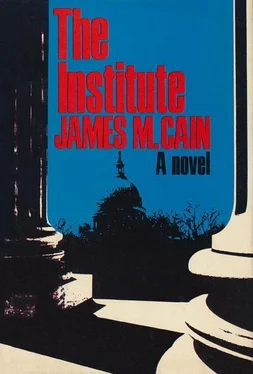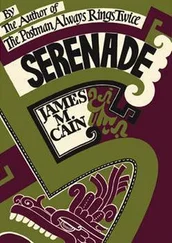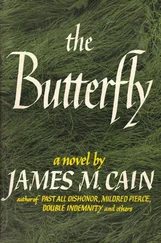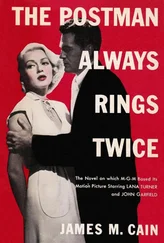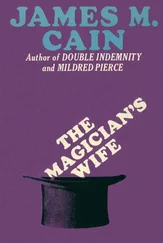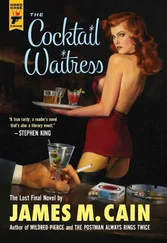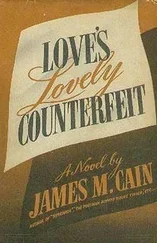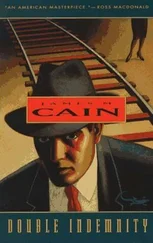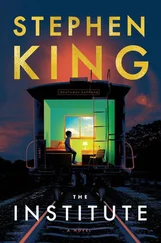“Neither have I.”
“But aren’t you on the pill?”
“Some kind of way, I guess. I hate it.”
I almost jumped out of my skin around sunup at the sound of the phone ringing. When I answered, a man said: “Dr. Palmer? Dr. Lloyd Palmer?”
When I said it was, he said his name was Dennis or Henderson or Henson, or something like that, that he was doing a biography of John Adams, “one of my American patriot series, which, no doubt, you’ve heard of. They’re school texts all over the country, standard for eighth, ninth, and tenth grades. And I wish you would put me down for a grant-in-aid from the Hortense Garrett Institute.”
I suppose he said more before I could slow him down, put away the receiver, get up, go to the closet, get a pen from my coat, come back, and ask him to repeat what he had said. By this time, Hortense was awake, leaning up on one elbow and staring at me, baffled.
I started him up again and made some notes on what he said. I told him that his application would have my serious consideration, but before hanging up, I couldn’t resist the temptation to tell him that if he really wanted a grant-in-aid, calling me at such an ungodly hour was a poor way to get it. He seemed surprised, even insulted.
“I assumed,” he said, “that in a fairly run organization, things go on a first-come, first-served basis.” By this time I was not only annoyed but curious, so I asked him how he had got my name in the first place.
“In the Republican. I’m looking at it as I sit here.”
The Republican, it turned out, was the Springfield, Massachusetts Republican, and he had got my number from Information.
I climbed back in bed but had hardly got under the covers when the phone rang again. This time it was a woman doing a book on Mary Baker Glover Patterson Eddy. She lived in Newark, New Jersey. Again I made notes. When the phone rang for the third time, I just banged it down and didn’t answer. Then I took the receiver off the hook.
We lay looking at each other. By that time, of course, sleep was out of the question. I dressed and went down to the lobby for the paper. What it contained was enough to curdle your blood. At the top of one of the inside sections was a four-column shot of Teddy doing her handstand, face to the camera and backside just above it, with both patches showing. The caption read: WHERE WAS MRS. GARRETT?
But the main story made sense. It was mostly about me and what I had said about American biography, with quotations from my brochure and flanking photos of me looking oily and Mrs. Garrett looking annoyed. Then I called Western Union. When I told the girl who answered who I was, she said: “Oh yes. Dr. Palmer, we have some messages for you — three telegrams and two night letters. Will you hold on a minute? I’ll read them to you.”
I yelped: “No, no, no! Don’t read anything. They’re what I called about. Will you mark them and anything else that comes: Mail — Don’t Phone!” When she had that straight, I hung up, left the receiver off again, and let Hortense make me some breakfast. Then I said: “I have to go to town — into the District. If this is how it’s going to be by wire and phone, the mail will be twice as bad, and I have to do something about it, make some arrangement with the Post Office.”
“What about this phone?”
“I’ll call the phone company and ask them to take over.”
Dialing once more a number which the operator gave me, I got the business office. Their suggestion was to have the number changed to an unlisted one. I asked how long that would take, and the woman said a couple of days. When I asked what to do in the meantime, she said: “Well, can’t you leave the receiver off the hook?”
“That’s what I’m doing now.”
“Then you’re doing the right thing... Oh, I almost forgot. The charge for switching you over will be ten dollars on your next bill.”
“I’d pay a hundred.”
The main post office in the District of Columbia is on North Capitol Street. There I talked with a Mr. Stone in one of those rooms at the end of an endless corridor covered with green linoleum. He listened, then talked into a hushaphone thing that he cradled on one shoulder. Then he said: “I would say that your institute’s main problem is that it lacks an address. We have boxes at various rates. I would think the seven-fifty size would be right for you. That’s seven dollars and fifty cents a quarter. Or, if you prefer, we can give you a pouch. But I think the box would be best.”
“I’ll take the box.”
I paid him. He got up, took some keys from a rack, gave them to me, saying: “In a moment, I’ll show you where it is.” He sat drumming his fingers, apparently waiting for something. In a moment a messenger came in and dropped a half-dozen letters in front of him. He glanced at them and then gave them to me. “You’re right,” he said, “you have quite a crop already.”
The letters were addressed to me, the Hortense Garrett Institute, the Hortense Garrett Foundation, Hortense Garrett, and some other variations. I picked them up and put them in my pocket, then went with Mr. Stone to a place on the first floor where there was an entire wall of boxes, all with numbers on them. He let me unlock mine. He asked if that would be all, and when I said it would and thanked him, he waved his hand and left.
I had taken care of wires, phone calls, and mail, but that was just the beginning. I had no more idea than the man in the moon what to do about the deluge of applications or, except in a general way, what the reason for it was. I had to have help, and I knew only one place to get it: headquarters. I went to the Garrett Building to phone Mr. Garrett in Wilmington. To my surprise, instead of being appalled at the turn things had taken, as I was, he was pleased, on the basis on what had come out in the Wilmington papers. The Associated Press, instead of playing it cute, had carried a straight story about the Institute, with an account of what I had said, quotations from the brochure, and a few formal words from Mr. Garrett. It hadn’t occurred to him yet that it was this straight story that was causing the trouble. It was an open invitation to anyone who might be interested to put in for a lump of the sugar. When I pointed this out to him, he began to laugh and told me I’d better come see him. So, without waiting around (it wasn’t yet twelve noon), I got in my car and drove up.
He sat there in his office and listened very closely. “It seems to me,” he said, “we have to make up our minds what we’re trying to do. Is it to discover new talent and then encourage it? Or reward talent already proven? Or what?”
“On talent,” I said, “let’s forget it. There’s so much talent for biography in this country that encouraging new talent is like encouraging fish in the sea to swim.”
“What, then?”
“We have to check on talent, that we take for granted. But the main thing is the project an author has in mind. Is it worth our support?”
“And who will decide that?”
“ I will, I should think. But my problem is, I don’t know where to start. As things now stand, I’m swamped, utterly snowed under.”
“Let me give it a mull.”
So he mulled. Then he said: “I think you need a staff.”
“Of researchers?”
“Of investigators, would be more like it — gumshoes like those I have down there in Washington. Not guys who dig into books, but who dig into people. Who’ll get on the tail of these writers, find out who they are, what they’ve done, what they’re up to now — and report. Then you can make up your mind.”
“The staff will add to our overhead.”
“But not as much as trying to do everything yourself. And, while we’re on the subject, what other help will you need once we’re actually going?”
Читать дальше
